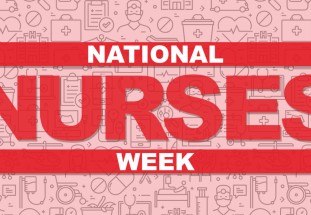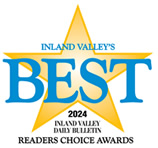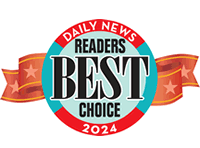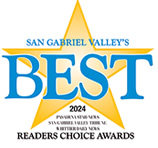
Success in nursing and Physical Therapist Assistant (PTA) interviews goes beyond technical expertise. It requires a deep understanding of patient care, healthcare environments, and the ability to effectively communicate your skills. Whether you are preparing to launch your career as a Licensed Vocational Nurse (LVN) or a Physical Therapist Assistant (PTA), the right training can make all the difference. At American Career College, our VN program and PTA program helps equip students with the clinical knowledge, hands-on experience, and professional confidence needed to excel in interviews and beyond.
This guide provides advanced interview strategies tailored to showcase both your clinical expertise and professional readiness, helping you stand out in today’s competitive healthcare job market.
Essential Interview Preparation Strategies
Research the Organization
- Comprehensive investigation: Analyze patient reviews, community initiatives, quality metrics, and industry rankings beyond basic website information.
- Strategic knowledge integration: Seamlessly incorporate facility-specific details into your responses. For example, if interviewing at a Magnet-recognized hospital, discuss how the American Nurses Credentialing Center (ANCC) standards align with your nursing philosophy.
- Competitive positioning awareness: Articulate your understanding of how the facility differentiates itself within the healthcare marketplace and why this alignment matters to your career trajectory.
Master the Job Description
- Systematic skills-experience alignment: Create a detailed document mapping each stated requirement to specific professional accomplishments with supporting evidence.
- Impact quantification: Prepare precise metrics demonstrating your effectiveness (e.g., "Developed a patient education protocol that increased compliance by 35% and reduced readmissions by 17%").
- Implicit requirement identification: Analyze the job posting to uncover unstated but highly valued qualities specific to their organizational culture.
Behavioral Interview Excellence (STAR Method)1
- STAR Method: A structured formula for answering behavioral interview questions by clearly outlining the Situation (context, 20%), Task (your responsibility or goal, 10%), Action (specific steps you took, emphasizing relevant skills, 60%), and Result (quantifiable outcomes and learnings, 10%).
- Strategic narrative development: Pre-craft 5-7 compelling professional narratives demonstrating diverse competencies across clinical, interpersonal, and leadership domains.
- Performance refinement: Record and critically analyze your practice responses to enhance clarity, conciseness, and impact.
- Results amplification: Structure every STAR response to emphasize measurable outcomes, systemic improvements, and professional growth.
Professional Presence
- Strategic impression calibration: Select attire slightly exceeding workplace standards while reflecting healthcare professionalism.
- Virtual interview optimization: Conduct comprehensive technology testing, establish optimal lighting, eliminate environmental distractions, and position yourself professionally within the frame.
- Confidence enhancement: Implement evidence-based techniques like power posing and positive visualization before interviews to naturally project confidence.
Strategic Questioning
- High-impact inquiries:
- "What specific qualities differentiate your highest-performing team members in this role?"
- "How does your organization define and measure excellence for this position?"
- "What pressing challenges is your department addressing, and how might this role contribute to those solutions?"
- "How does your organization support adherence to standards established by the American Nurses Association (ANA) or American Physical Therapy Association (APTA)?"
Effective Follow-Up
- Personalized appreciation strategy: Write a thank-you message referencing specific interview insights that resonated with you.
- Value proposition reinforcement: Concisely reiterate how your unique qualifications address their specific needs or challenges.
- Optimal timing execution: Send your follow-up within 12 hours to maximize impact while the conversation remains fresh.
Nursing Interview Specialization
Patient-Centered Care Excellence
- Care philosophy articulation: Develop a compelling statement about your patient care approach that explicitly aligns with American Nurses Association (ANA) standards and ethical frameworks.
- Empathetic practice demonstration: Share specific scenarios showcasing your emotional intelligence, cultural competence, and patient advocacy.
- Advocacy portfolio: Prepare detailed examples of successfully advocating for patient preferences, family inclusion, or ethical considerations within complex care situations.
Clinical Expertise Showcase
- Specialized clinical proficiency: Emphasize unit-specific competencies and certifications relevant to the position, ensuring alignment with National Council of State Boards of Nursing (NCSBN) standards and best practices.
- Evidence-based practice integration: Discuss specific examples of implementing research findings from National Institutes of Health (NIH) or other authoritative sources into your clinical decision-making.
- Professional development commitment: Detail your continuing education activities, specialty certifications, and professional organization involvement demonstrating commitment to clinical excellence.
Collaborative Excellence
- Interdisciplinary collaboration portfolio: Highlight successful partnerships with physicians, therapists, social workers, and other healthcare professionals that improved patient outcomes.
- Conflict resolution expertise: Present examples of transforming interprofessional disagreements into improved care protocols or enhanced communication systems.
- Leadership initiative demonstration: Share specific instances where you identified opportunities for improvement and led implementation of evidence-based solutions.
Resilience and Adaptability
- Crisis management protocol: Articulate your systematic approach to emergency situations emphasizing clinical prioritization, team coordination, and emotional steadiness.
- Wellbeing maintenance strategies: Discuss specific self-care practices that maintain your professional effectiveness amid healthcare challenges.
- Adaptability evidence: Present concrete examples demonstrating your ability to pivot seamlessly as patient conditions, departmental needs, or organizational priorities evolve.
PTA Interview Specialization
Therapeutic Intervention Mastery
- Evidence-based methodology: Demonstrate commitment to interventions supported by current research, explicitly referencing American Physical Therapy Association (APTA) clinical practice guidelines and standards.
- Advanced modality proficiency: Highlight specialized training and practical expertise in therapeutic techniques specific to the facility's patient population.
- Adaptive intervention design: Share detailed examples of creatively modifying treatment approaches to accommodate patient limitations while maintaining therapeutic objectives and measurable outcomes.
Patient Engagement Excellence
- Motivation enhancement techniques: Detail your evidence-based methods for increasing patient compliance, including goal-setting strategies and progress visualization tools.
- Education methodology: Explain your process for ensuring patients comprehend home exercise programs, including assessment of understanding and adaptive teaching approaches.
- Progress celebration framework: Discuss your systematic approach to acknowledging therapeutic milestones to sustain patient motivation throughout the rehabilitation journey.
Clinical Foundation Strength
- Biomechanical analysis expertise: Prepare to provide sophisticated explanations of the anatomical and physiological rationale underlying specific therapeutic interventions.
- Assessment precision methodology: Emphasize your meticulous approach to measuring therapeutic progress using validated tools and objective metrics.
- Functional outcome orientation: Demonstrate comprehensive understanding of how clinical interventions translate to meaningful improvements in patients' quality of life and daily functioning.
Professional Role Clarity
- PT collaboration model: Articulate your approach to supporting physical therapists' plans of care while contributing valuable clinical insights and observations.
- Scope of practice mastery: Show sophisticated understanding of professional boundaries and escalation protocols in alignment with Federation of State Boards of Physical Therapy (FSBPT) guidelines.
- Documentation excellence: Highlight your ability to create comprehensive, precise treatment records that support continuity of care and meet regulatory requirements.
By implementing these advanced preparation strategies, you'll demonstrate not only exceptional clinical qualifications but also the emotional intelligence, professional judgment, and strategic thinking essential for excellence in today's complex healthcare environments.
1 https://capd.mit.edu/resources/the-star-method-for-behavioral-interviews/












